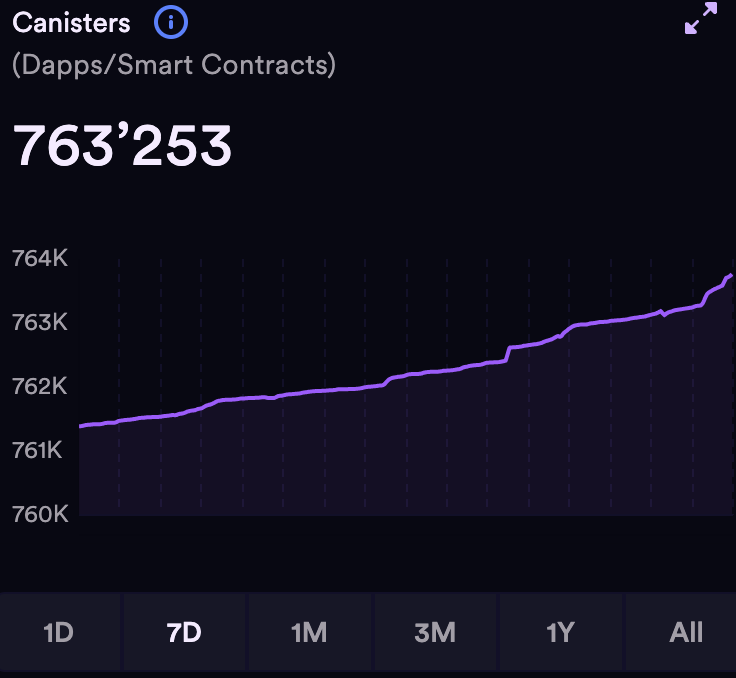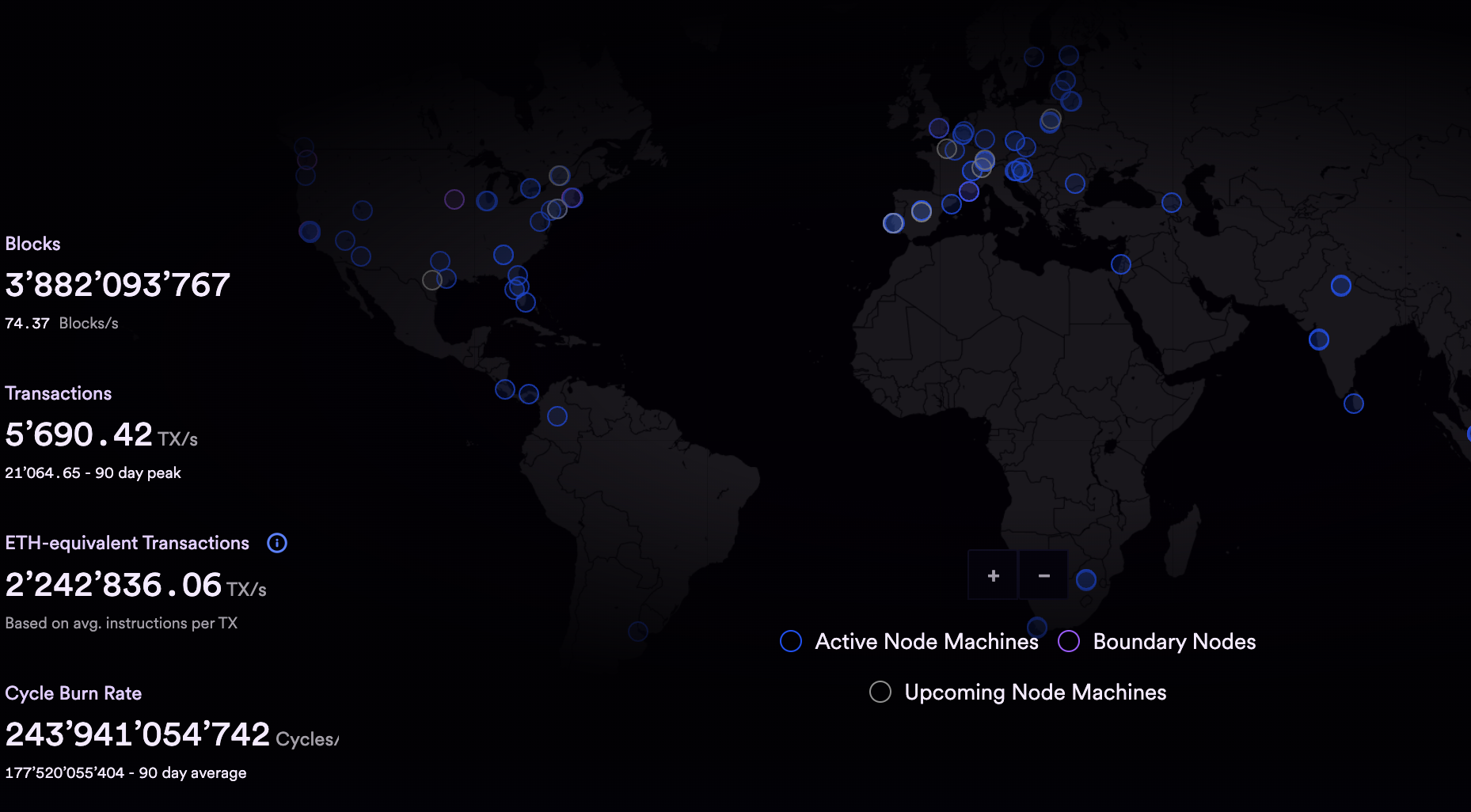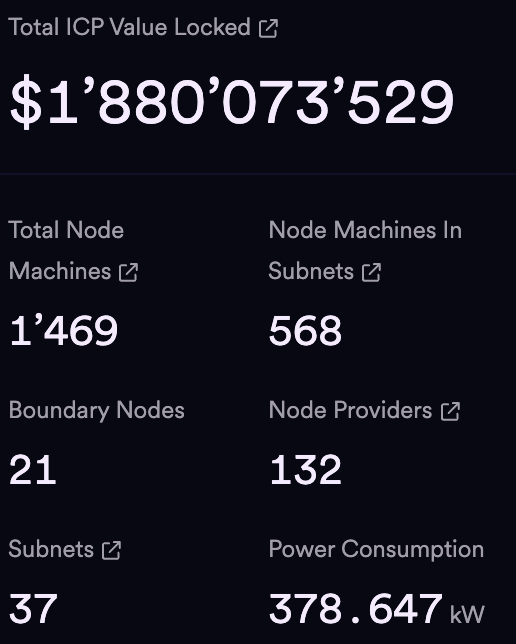Imagine an internet where you own the apps, control the data, and even manage the infrastructure. This is the vision of Internet Computer Protocol (ICP). Today, we'll break down what ICP is, how it works, and why it could change how we use the internet in the future.

What is Internet Computer Protocol (ICP)?
So, what exactly is ICP? In simple words, the Internet Computer Protocol is a new way to run the internet. Instead of apps and services depending on big tech companies and their central servers, ICP runs on a network that is controlled by the community. This means the internet is not in the hands of a few powerful companies—everyone can have a part in it.
The goal of ICP is pretty big: it wants to create a new type of internet where anyone can build apps that are fast, can grow as needed, and do not depend on traditional IT infrastructure like Amazon or Google. Imagine a world where you could launch your own app without worrying about these big companies and have full control over your data. It would be a huge change in how we see and use the internet.
What our ICP Review!
One of the best things about ICP is that it can handle a large number of transactions and smart contracts—much more than traditional blockchains. This means ICP solves some of the problems other blockchains have with getting bigger as more people use them. It is also very fast, with transactions happening in just a few seconds, so apps built on ICP work just as quickly as the ones we use today. Plus, it costs less to run these apps compared to regular cloud services, which makes it easier for developers and entrepreneurs to create new things without spending a lot of money.
How ICP Works
ICP runs on independent servers called nodes, which are grouped into subnets. These subnets host canisters, which are like super-powered smart contracts that hold both the code and the data needed to run apps. These canisters are the building blocks that developers use to create their apps on ICP.
To make it simpler, think of canisters as tools that developers use to make apps. The nodes are the servers that keep the ICP network running, and subnets are groups of these nodes working together to make the system stronger and able to handle more data as more people use it. This means the network can grow as needed without slowing down or causing problems.

ICP’s setup is made to be simple and efficient so that apps can be built and run in a decentralized way. Unlike traditional apps that are hosted on centralized servers, which can have downtimes or be hacked, ICP's decentralized system is much more reliable. If one part fails, the rest of the network keeps going, making sure everything works smoothly.
Motoko: The Programming Language for ICP
To make it easier for developers to create apps on ICP, the team made a special programming language called Motoko. Motoko helps developers make secure and scalable apps with fewer bugs. This language is easy to use, even for people who aren't experts, which makes it easier for more developers to join in and start building.
Motoko is built specifically for ICP, so it works perfectly with the network's unique features. It is designed to be simple enough for beginners while also powerful enough for experienced developers who want to make more complex applications. Motoko also has safeguards built in to prevent common mistakes, which means fewer bugs and better security.
What Makes ICP Stand Out?
One of the most important things about ICP is its speed. Transactions happen in just seconds, which makes apps built on ICP just as fast as the ones you are used to today. This is important because people expect the internet to be quick and responsive, and ICP is designed to meet those expectations.
Other blockchain networks, like Ethereum, can be slow, especially when lots of people are using them at the same time. ICP uses new technology to make sure its performance stays high, no matter how many people are using it. This means you can use apps on ICP without the annoying lag that sometimes happens with other blockchain platforms.

ICP's Consensus Mechanism: How It Stays in Sync
ICP uses a consensus mechanism with two key technologies to keep everything running smoothly:
- Threshold Relay: Helps the network quickly and securely agree on transactions.
- Chain-Key Technology: Helps different parts of the network communicate and work well together, making everything scalable and efficient.
These technologies make sure that ICP can handle a lot of transactions at once, which is essential for powering a decentralized version of the internet. The combination of Threshold Relay and Chain-Key Technology allows ICP to process thousands of transactions per second, making it much faster and more reliable than many other blockchain networks.

Chain-Key Technology: Simplifying Operations
Chain-Key Technology is special because it makes the network easier to manage. Instead of dealing with lots of different keys, the whole network uses just one public key to verify transactions. This keeps everything simple, secure, and fast as more users and apps join.
Having a single public key means any device can easily verify that transactions are real. This not only makes operations simpler but also adds a layer of security by reducing the number of keys that need to be managed. Chain-Key Technology also allows the network to be updated without any downtime, so improvements can be made instantly without disrupting services.
Reverse Gas Model: A User-Friendly Approach
Another cool thing about ICP is the reverse gas model. On other blockchains like Ethereum, users have to pay fees to use the network, called "gas fees." But ICP does things differently. Instead of users paying these fees, developers are the ones who pay to keep their apps running. This means users don’t have to worry about transaction fees, making ICP apps easier and more comfortable to use.
This model is a big step in making blockchain technology user-friendly. On platforms like Ethereum, users need to understand gas fees and manage their wallets, which can be confusing. With ICP, the reverse gas model makes it so that users can enjoy a simple experience, just like they are used to with regular apps, without worrying about fees.
ICP Ecosystem: What’s Being Built?
There are some exciting projects within the ICP ecosystem:
- DSCVR: A social platform similar to Reddit, but decentralized, where users control their content.
- OpenChat: A secure messaging app where messages are private and do not rely on big tech servers.
- Sonic: A finance platform for trading, lending, and borrowing without middlemen.
- Entrepot: An NFT marketplace where you can buy and sell digital collectibles and art.
These projects are changing the way we think about apps, data, and ownership on the internet. DSCVR shows what a social media platform could look like if users were in charge. OpenChat is making messaging more private and secure. Sonic is creating a new type of financial system that doesn’t need banks, and Entrepot gives artists a way to sell their work directly without paying high fees to intermediaries.
ICP Tokenomics: How the Token Works
As of September 2024, there are about 524 million ICP tokens, with around 471 million actively in use. These tokens have several important roles:
- Transaction Fees: Used to pay for transactions.
- Cycles: ICP tokens can be turned into cycles, which power the canisters (smart contracts) on the network.
- Governance: Token holders can vote on proposals and changes to the network.
- Staking: By staking ICP tokens, users help keep the network secure and earn rewards.
The governance part of ICP is interesting because it allows people who hold tokens to have a say in how the network changes. The Network Nervous System (NNS) is the system that lets token holders vote and make decisions about upgrades and changes. This is meant to make the network controlled by the community instead of one central group.
Staking is also important in ICP. When users lock up their tokens, they help keep the network secure, and in return, they earn rewards. This not only helps make the network safer but also encourages users to stay committed for the long term, which is good for the health and growth of ICP.
Challenges ICP Faces
Like any big project, ICP faces challenges. Scalability is always something to work on—keeping everything running smoothly as more people use it is not easy. The network is built to grow, but making sure that it can do this without slowing down or running into problems requires constant updates and improvements.
Another challenge is node distribution. Right now, a lot of the network is controlled by a small number of groups, which raises questions about how decentralized it really is. The goal is to spread out control more evenly over time, but this is still a work in progress. Having more nodes run by different people would help make the network more secure and less vulnerable to attacks.
Decentralization Concerns
Some people worry about how much control the DFINITY Foundation still has over ICP. While ICP has a system called the Network Nervous System (NNS), which lets token holders vote on changes, there is still a feeling that more work needs to be done to make it truly decentralized.
The DFINITY Foundation plays a big role in building and guiding ICP, which has led to some debate about whether ICP is as decentralized as it aims to be. The NNS is meant to gradually give more control to the community, but this takes time. Many people in the blockchain world believe that decentralization is key, and how well ICP can achieve this will be very important for its success.
Privacy and Security
Privacy and security are top priorities for ICP. It uses advanced cryptography and decentralized nodes to make sure user data stays private and secure. Unlike traditional cloud services where data is stored on one server, ICP stores data across the network, which makes it much harder for anyone to access or control it without permission.
Because ICP is decentralized, it helps protect against data breaches and unauthorized access. Instead of storing all data in one place, ICP spreads it out, making it more secure. In today’s world, where privacy is a big concern, ICP's approach provides a safer option compared to traditional internet services.
Final Thoughts on ICP Crypto Review
ICP has a bold vision for the future—one where power is shared, privacy is protected, and innovation is open to everyone. By using advanced technologies and rethinking how the internet works, ICP is trying to make the web more open and driven by the community. It’s an exciting time for blockchain and decentralized technology, and ICP is leading the way. Let’s keep learning and growing together!
Starting your crypto journey? Our community simplifies complex concepts like ICP, giving you actionable insights and exclusive resources. Join today to master crypto with experts and enthusiasts by your side!



